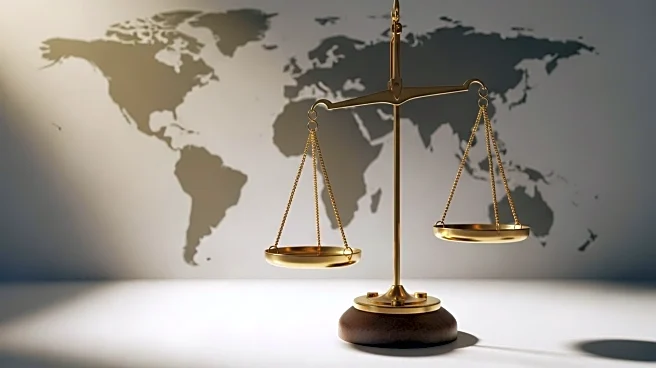What's Happening?
Press freedom is reportedly in decline across Asia, with China and Myanmar identified as significant jailers of journalists. The situation is part of a broader global decline in democracy, described metaphorically as a slow decay similar to ice melting. In China, citizen journalist Zhang Zhan was sentenced to four more years in prison for her reporting during the COVID-19 outbreak. Rights groups have noted a steady increase in the detention of journalists across the Asia-Pacific region, with China, Afghanistan, Vietnam, and Myanmar leading this trend. The U.S. has also canceled funding for independent media in the region, while China is exporting surveillance techniques beyond its borders.
Why It's Important?
The decline in press freedom in Asia has significant implications for global democracy and the free flow of information. The jailing of journalists and the suppression of independent media can lead to a less informed public and hinder democratic processes. The export of surveillance techniques by China could further restrict press freedom in other countries, potentially leading to a global increase in censorship and control over media. This situation poses a challenge to international human rights organizations and governments advocating for press freedom and democracy.
What's Next?
The ongoing suppression of press freedom in Asia may prompt international human rights organizations to increase their advocacy efforts. Countries that value press freedom might consider diplomatic or economic measures to pressure governments that suppress media. Additionally, there could be a push for more robust international agreements or coalitions to protect journalists and promote free speech globally.
Beyond the Headlines
The decline in press freedom in Asia could lead to long-term cultural and societal shifts, as populations become accustomed to limited access to information. This could affect public discourse and the ability of citizens to hold their governments accountable. The situation also raises ethical questions about the role of technology in surveillance and censorship, and the responsibility of tech companies in protecting or infringing on press freedoms.









